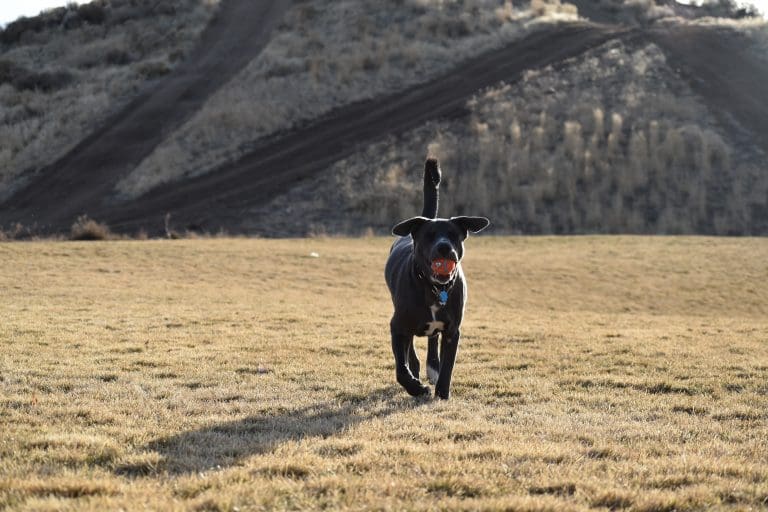What Vitamin Deficiency Causes Hair Loss In Dogs?
Post Date:
December 10, 2024
(Date Last Modified: December 10, 2024)
Hair loss in dogs can be a distressing issue for pet owners, often indicating underlying health problems. One significant factor contributing to this condition is vitamin deficiency. Recognizing which vitamins are essential for a healthy coat can help prevent and address hair loss in your pet.
Vitamins are vital for numerous bodily functions, including skin health and hair growth. Dogs require a balanced diet rich in essential nutrients to thrive. A lack of certain vitamins can result in noticeable changes in their coat, such as thinning hair and bald patches. Key vitamins related to hair growth and skin health include vitamins A, E, and various B vitamins, particularly biotin.
The Role of Vitamin A
Vitamin A is crucial for maintaining healthy skin and fur. It regulates sebum production, the natural oil that keeps the skin moisturized. A deficiency can lead to dry, flaky skin and hair loss, with dogs showing signs like a dull coat and increased skin infections. Foods rich in vitamin A, including liver, fish, and sweet potatoes, can enhance your dog’s skin and coat condition.
Importance of Vitamin E
Vitamin E supports skin health as an antioxidant, protecting cells from damage caused by free radicals. A deficiency can lead to poor skin health and hair loss, along with symptoms like muscle weakness and a weakened immune response. Foods such as vegetable oils, nuts, and leafy greens can help boost vitamin E levels in your dog’s diet.
B Vitamins and Biotin
B vitamins, especially biotin, are essential for hair growth and skin health. Biotin, often called the “hair vitamin,” significantly impacts the condition of your dog’s coat. A deficiency can cause hair loss, scaly skin, and brittleness. Dogs on a low-biotin diet may experience lethargy and poor appetite. Good sources of biotin include eggs, liver, and whole grains.
The Importance of Omega Fatty Acids
In addition to vitamins, certain minerals and fatty acids are crucial for maintaining a healthy coat. Omega-3 and omega-6 fatty acids are essential for skin health, helping keep the skin hydrated and reducing inflammation. A deficiency in these fatty acids may lead to dry, flaky skin and hair loss. Foods high in omega fatty acids, like fish oil and flaxseed oil, can be beneficial for your dog’s skin and coat.
Other Causes of Hair Loss
While vitamin deficiencies are a common cause of hair loss, they aren’t the only factor. Hormonal imbalances, allergies, parasites, and other health issues can also contribute to changes in a dog’s coat. Significant hair loss or concerning symptoms warrant a consultation with a veterinarian, who can diagnose the underlying cause and recommend appropriate treatments, including dietary changes, supplements, or medications.
Ensuring a Balanced Diet
Pet owners must ensure their dogs receive a balanced diet to prevent vitamin deficiencies that can lead to hair loss. Commercial dog foods are formulated to meet nutritional needs, but selecting high-quality brands that use natural ingredients is essential. Some lower-quality foods may not provide sufficient levels of essential vitamins and minerals, leading to deficiencies over time.
If considering dietary supplements, consult with a veterinarian first. They can recommend specific supplements based on your dog’s individual needs and health status. Providing too many supplements can be harmful, so a balanced approach is necessary to avoid the risk of overdose.
Monitoring Coat and Skin Health
Regularly monitoring your dog’s coat and skin condition is an essential aspect of responsible pet ownership. Grooming helps identify changes early, allowing for prompt intervention if needed. Watch for signs of dryness, flakiness, or unusual hair loss, and address these issues as they arise. Routine veterinary checkups can catch potential problems before they escalate.
Hair loss in dogs often traces back to vitamin deficiencies, particularly in vitamins A, E, and B, especially biotin. A well-rounded diet that includes these essential nutrients, along with omega fatty acids and minerals, is vital for maintaining a healthy coat and skin. If changes in your dog’s coat are observed, seeking veterinary advice tailored to your pet’s needs is crucial. With proper care, your furry friend can maintain a healthy, vibrant coat.






